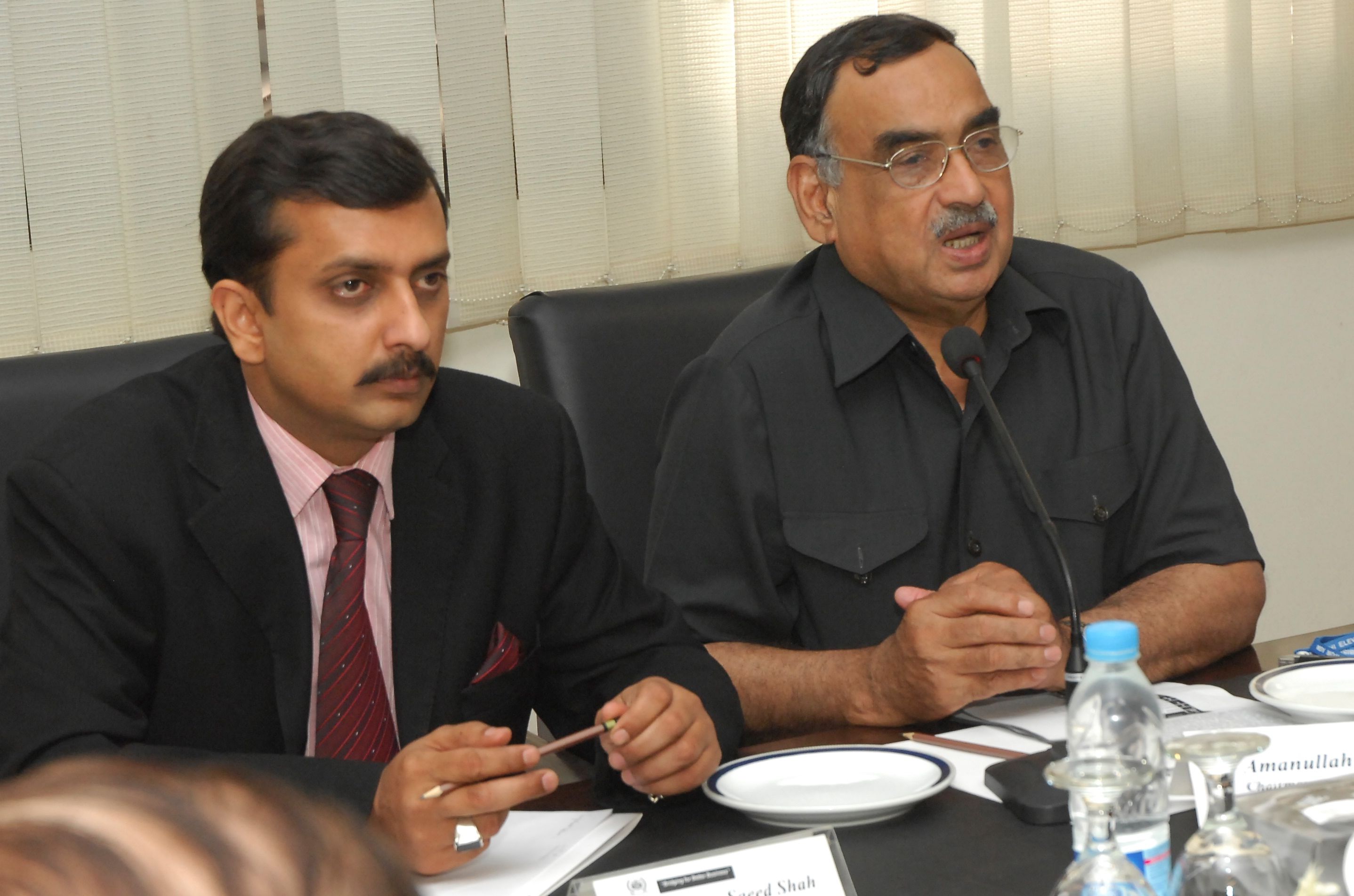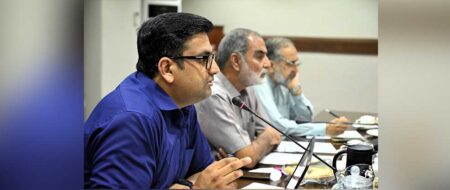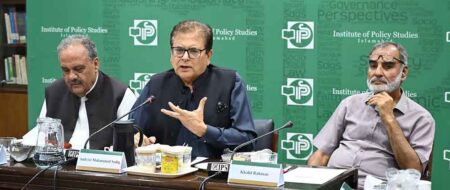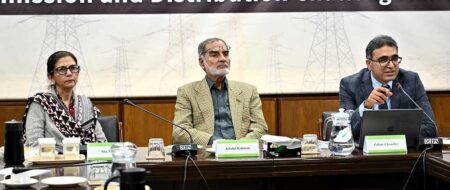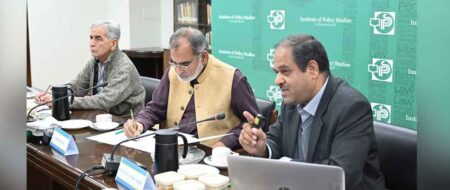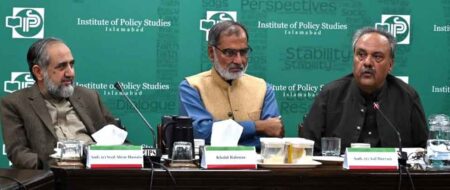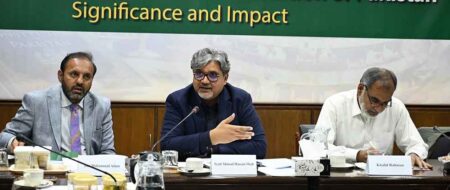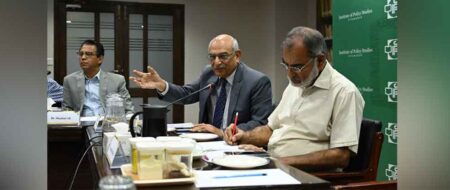WTO – Status and the Way Ahead
Institute of Policy Studies, Islamabad organized a roundtable tilted “WTO: Status and the Way Ahead “, in collaboration with the Rawalpindi Chamber for Commerce and Industry at the chamber’s premises on April 28. Fasih Uddin, former Chief Economist Government of Pakistan and Member, IPS NAC was the main speaker.
Institute of Policy Studies, Islamabad organized a roundtable tilted “WTO: Status and the Way Ahead “, in collaboration with the Rawalpindi Chamber for Commerce and Industry at the chamber’s premises on April 28. Fasih Uddin, former Chief Economist Government of Pakistan and Member, IPS NAC was the main speaker.
Opening the discussion, Aman Ullah Khan, Chairman WTO Committee of the chamber presented a brief overview of the evolution of multilateral trading regime, introduction of WTO, its objectives and functions. He emphasized that as Pakistan was one of the founding members of GATT since September 1947, the predecessor of WTO; it meant that the country stood for multilateral system of free and fair trade from very beginning.
The main speaker, Fasih Uddin, said that at WTO, the decisions were to be made by consensus – which was the major reason for difficulties faced in concluding the negotiations – as it was hard to arrive at a consensus among 153 members with varying trading interests. He enlightened that the bone of contention at the ongoing but troubled round of negotiations known as Doha Round was agricultural subsidies given by developed countries particularly the US to their farming community. “Although only 4 % of American population is involved in agriculture, the agri lobby is very strong in America”, he added.
Noting that China, India, Brazil and South Africa have become major players at WTO from the South, he highlighted that the negotiations have very much been politicized in recent years.
The seasoned economist, however, opined that an early and successful conclusion of the Doha Round was in the interests of both developed as well as developing world. “Nothing could be achieved without some sacrifice”, he noted. Quoting WTO Director General Pascal Lamy, he said that according to modest estimates, a successful conclusion of Doha Round could result in gains worth $ 130 billion, possibly more.
Irfan Shahzad, Lead Coordinator IPS stressed that study of WTO and its implications should be a subject of constant focus for all the stakeholders. He noted that deliberations upon issues related to WTO have decreased in Pakistan over the years, while the implications continued to rise.
Concluding the session, Khalid Rahman, Director General IPS emphasized that all stakeholders will have to take care of their respective responsibilities to benefit from the opportunities and to mitigate the challenges that emerge in the wake of organizations such as WTO. “Remaining engaged in our own worlds will continue to increase our difficulties”, he opined. DG IPS drew the attention of chamber for a more concerted work on such issues.
 |


